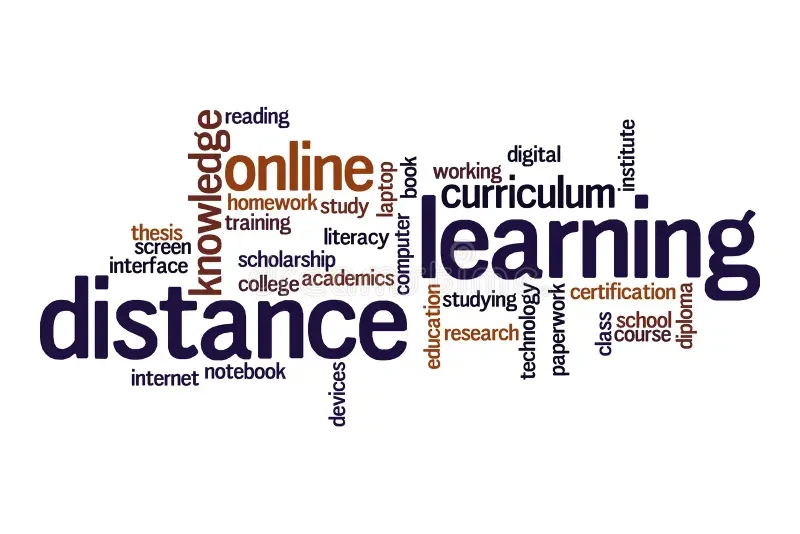Distance learning programs have become increasingly vital in today’s educational landscape, offering innovative solutions for students seeking flexible and accessible learning opportunities. As technology advances and the need for remote education grows, distance learning has established itself as a preferred option for many learners, professionals, and lifelong students. This article delves into the essence of distance learning, its benefits and challenges, and essential tips for selecting the right program.

Understanding Distance Learning
Distance learning, often referred to as online education or e-learning, involves educational activities that occur remotely, allowing students to learn without the constraints of physical classrooms. Students can access course materials, participate in discussions, and complete assignments via the internet, providing the flexibility to study from anywhere in the world.
Types of Distance Learning Programs
Distance learning encompasses various formats to accommodate different learning styles and goals:
- Fully Online Degree Programs
Many universities offer accredited degree programs that students can complete entirely online, from associate to doctoral levels, allowing for a comprehensive educational experience without attending classes in person. - Certificate and Diploma Programs
Shorter programs focusing on specific skills or knowledge areas are available, making them ideal for those looking to enhance their qualifications quickly. - Massive Open Online Courses (MOOCs)
Platforms like Coursera, edX, and FutureLearn provide free or low-cost courses from renowned institutions, allowing learners to explore diverse subjects and gain knowledge without formal enrollment. - Blended Learning
This hybrid model combines online and in-person instruction, offering students the flexibility of online learning while still enabling face-to-face interaction and collaboration. - Self-Paced Learning
Many distance learning programs allow students to progress through materials at their own speed, catering to those with varying schedules and commitments.
Benefits of Distance Learning Programs
Distance learning presents numerous advantages, making it an attractive choice for many:
- Flexibility
The ability to study from anywhere at any time allows students to balance their education with work, family, and other responsibilities. - Accessibility
Distance learning removes geographical barriers, providing access to quality education for individuals in remote areas or those unable to attend traditional classes. - Cost-Effectiveness
Online programs often have lower tuition fees compared to on-campus options, and students can save on transportation, housing, and other associated costs. - Diverse Learning Resources
Students benefit from a range of multimedia resources, including video lectures, online discussions, and interactive assignments that cater to various learning styles. - Skill Development
Distance learning helps students cultivate essential skills such as self-discipline, time management, and digital literacy, which are increasingly valuable in the modern workforce.
Challenges of Distance Learning
Despite its advantages, distance learning also comes with challenges that students should be aware of:
- Self-Motivation Required
The flexibility of distance learning demands a high level of self-discipline and motivation, as students must manage their own time and study schedules. - Limited Social Interaction
The online nature of distance learning can lead to feelings of isolation, as students may miss the social aspects and networking opportunities found in traditional classrooms. - Technical Requirements
Students need reliable internet access and proficiency with online learning platforms to succeed. Technical issues can disrupt learning and hinder progress. - Hands-On Experience
Certain fields, such as healthcare and engineering, require practical experience that may be difficult to achieve in an online setting.
How to Choose the Right Distance Learning Program
Selecting the right distance learning program is crucial for achieving educational goals. Here are some key factors to consider:
- Accreditation
Ensure the institution is accredited to guarantee the quality of education and enhance the recognition of your degree or certificate. - Reputation and Quality
Research the program’s reputation through reviews, testimonials, and the success stories of alumni. Consider faculty qualifications and their experience in online education. - Format and Structure
Determine whether the program offers a self-paced or structured schedule. Choose a format that aligns with your learning style and personal commitments. - Support Services
Look for programs that provide academic advising, technical support, and access to resources such as libraries and tutoring services to aid your success. - Cost and Financial Aid
Compare tuition fees and investigate available scholarships, grants, or financial aid options to alleviate the financial burden.
Popular Platforms for Distance Learning
Several institutions and platforms are well-known for their high-quality distance learning programs:
- Coursera – Partners with leading universities to offer a variety of online courses, specializations, and degrees across multiple disciplines.
- edX – Founded by Harvard and MIT, edX provides access to high-quality online courses from renowned institutions and offers professional certificates and MicroMasters programs.
- Udemy – A platform featuring a wide array of courses across numerous subjects, often taught by industry experts and professionals.
- Khan Academy – Offers free educational resources and tutorials on a range of subjects, catering to learners of all ages.
- University of Phoenix – Known for its variety of online degree programs designed for working adults, focusing on flexibility and convenience.
Conclusion
Distance learning programs are reshaping the educational landscape, making quality education more accessible and flexible for learners around the globe. As technology continues to evolve, the opportunities for online education will only expand, providing individuals with the resources they need to pursue their academic and professional goals.
With the right program, commitment, and self-discipline, students can thrive in a distance learning environment, gaining valuable skills and knowledge that will serve them throughout their careers. Whether you are looking to advance your education, change your career path, or explore new interests, distance learning offers a flexible and effective pathway to success.